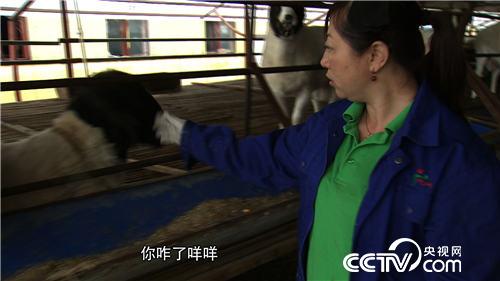Small mushrooms benefit the yellow land
Walking into the Minning Modern Edible Mushroom Industry demonstration Park in the Great Wall Yuan Village of Pengyang County, the reporter saw that in a modern greenhouse, mushrooms are growing gratifying. This park, with an investment of 2.45 million yuan in Fujian Province and 16 million yuan in local investment, is the demonstration base of edible mushroom industry with the highest degree of modernization and the largest scale in Ningxia and even the northwest region. 1600 intelligent temperature-controlled mushroom rooms have been built, with a daily output of 15 tons of fresh mushrooms, with an annual output value of 80 million yuan. The per capita income of farmers in the project area has increased by 3000 yuan. Villager Duan Qiao'e used to make a living by farming and odd jobs with a limited income and a hard life. Now working in the Futai fungus Company in the industrial park, with a monthly salary of more than 2000 yuan, she said happily, "the income has increased, and life is better."
Pengyang originally aseptic grass, fungus grass industry is the result of industrial cooperation in Minning. "the successful introduction of fungus and grass technology in Pengyang has broken the traditional grain-based planting mode in Xihaigu area and opened up a road of efficient agriculture." Li Shifeng, director of the Pengyang County Agriculture and Animal Husbandry Bureau, said: in 1996, the two provinces and regions of Fujian and Ningxia established a counterpart assistance relationship, and in 1997, Fujian Agriculture and Forestry University sent a poverty alleviation task force with fungus and grass technology to Pengyang County. In view of the local soil and climatic conditions, experts and professors of the fungus and grass technology poverty alleviation task force conducted repeated studies and experiments to launch products suitable for local cultivation. "fungus grass technology is an industry with low investment, quick results and high output rate. Farmers operating in accordance with technical regulations can recover their investment and make profits in the same year. In the second year, the input and output can reach more than 1 ∶ 4. A mushroom shed covering an area of more than 120 square meters can have an annual income of 4000 yuan to 7000 yuan, equivalent to the income of more than 20 mu of grain crops. " Li Shifeng said.
In order to reduce the cost of planting fungus grass and speed up the pace of farmers getting rid of poverty and becoming rich, experts and professors of Fujian Agriculture and Forestry University have invented the technology of planting fungus grass in abandoned caves in recent years. Farmers do not need to build greenhouses and can grow them using abandoned caves. This technology has greatly reduced the industrial threshold and promoted the development of Pengyang fungus grass large-scale industry. It is understood that Fujian poverty alleviation cadres and experts and professors have also worked with local cadres and masses to introduce improved varieties of rare edible fungi, forming a periodic production mode of growing eight crops of edible fungi a year, and exploring supporting technologies for rapid cooling and fresh-keeping and vacuum packaging, which has greatly improved the market competitiveness of the products.
Nowadays, the cultivation of fungus and grass has become the most beneficial project among the poverty alleviation projects in Minning, Pengyang County. Not only that, the cultivation of fungus grass is also promoted in other parts of Ningxia. According to statistics, over the past 20 years, the Institute of fungus and Grass of Fujian Agriculture and Forestry University has sent 15 batches of 205technical personnel to Ningxia to teach fungus and grass technology, developing 17000 mushroom farmers and planting mushrooms in 17000 sheds, increasing the average household income by 8000 yuan and increasing employment by 22800 people.
- Prev

Wang Lili: spicy Lili Hui is looking for sheep money
Wang Lili: spicy Lili Hui is looking for sheep money
- Next

Anyi County, Jiangxi Province: red Heart Fire Dragon Fruit holds up the Dream of getting Rich
Anyi County, Jiangxi Province: red Heart Fire Dragon Fruit holds up the Dream of getting Rich
Related
- A course of planting techniques and methods on how to grow carrots
- How to plant the latest tulips?
- Is it better to pick tea in the morning or in the afternoon? When is the best time for tea to be picked? what is the third or fifth tea?
- Launch Yuanxiao Happy combination Haocha + Tea Yuan healthy Taste
- Penghu Tourism "Fireworks 20 Parade with You"
- 2022 West Lake Happiness holds "Digital Revitalization Voucher" and draws iphone13 and laptop.
- Banqiao Fuzhou social houses are designed to change start-up combined with police elimination to create a safe and livable environment
- The convenient measure of "mechanical weeding" in Xinbei has been abused and the Agriculture Bureau has imposed heavy penalties on the illegal land consolidation.
- Changgeng University Joins Hands with Four Memory Factories to Rescue Memory Talent Shortage
- The list of Taiwan's top 100 MVP managers is listed by the Director-General of the Farmers' Association of Sanxia District.

